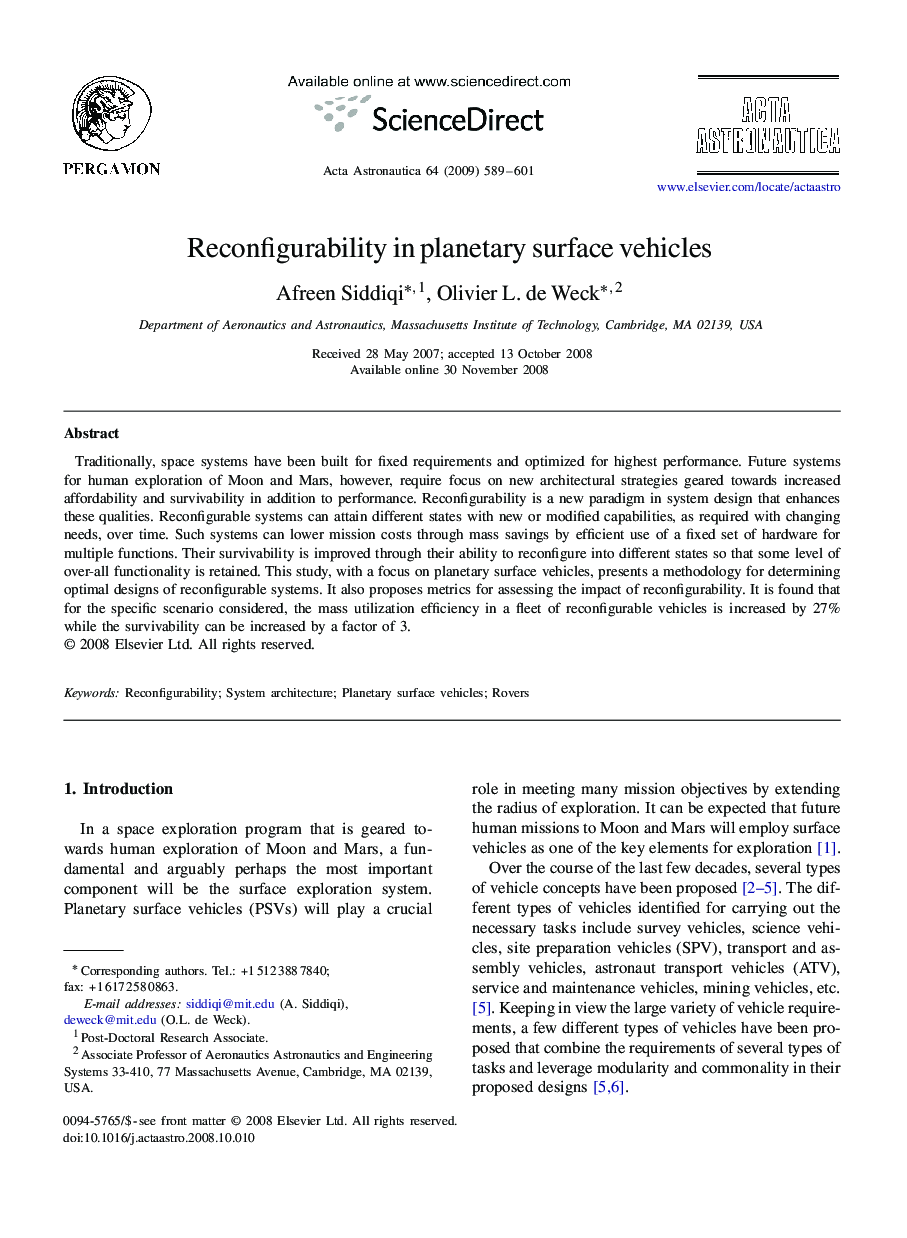| Article ID | Journal | Published Year | Pages | File Type |
|---|---|---|---|---|
| 1716695 | Acta Astronautica | 2009 | 13 Pages |
Abstract
Traditionally, space systems have been built for fixed requirements and optimized for highest performance. Future systems for human exploration of Moon and Mars, however, require focus on new architectural strategies geared towards increased affordability and survivability in addition to performance. Reconfigurability is a new paradigm in system design that enhances these qualities. Reconfigurable systems can attain different states with new or modified capabilities, as required with changing needs, over time. Such systems can lower mission costs through mass savings by efficient use of a fixed set of hardware for multiple functions. Their survivability is improved through their ability to reconfigure into different states so that some level of over-all functionality is retained. This study, with a focus on planetary surface vehicles, presents a methodology for determining optimal designs of reconfigurable systems. It also proposes metrics for assessing the impact of reconfigurability. It is found that for the specific scenario considered, the mass utilization efficiency in a fleet of reconfigurable vehicles is increased by 27% while the survivability can be increased by a factor of 3.
Related Topics
Physical Sciences and Engineering
Engineering
Aerospace Engineering
Authors
Afreen Siddiqi, Olivier L. de Weck,
